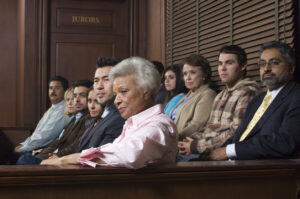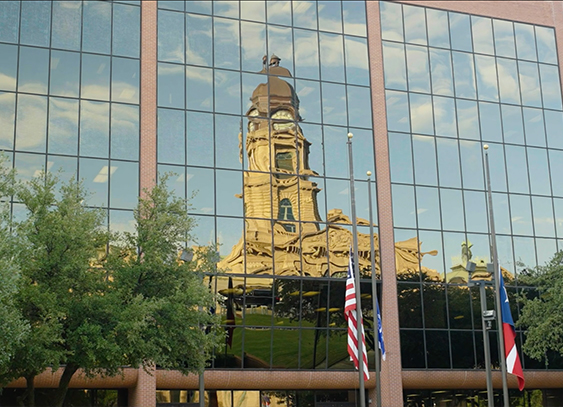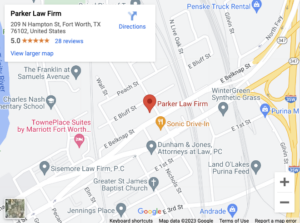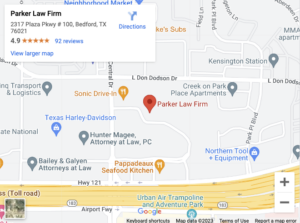
Evidence is crucial in most personal injury cases. It is not enough for an accident victim to allege they were injured because of someone else’s wrongdoing. Instead, they must usually present evidence to prove this.
In a case based on negligence, the plaintiff must prove that the defendant owed them a legal duty, breached that duty, and caused them harm. This is typically completed by presenting evidence to the factfinder.
The Role of Evidence in Personal Injury Cases

The injured party is the plaintiff in a personal injury case. If a case goes to trial, the plaintiff will have the burden of proof. In a civil case, the burden of proof is by the preponderance of the evidence, which means that the facts are more likely than not as the plaintiff alleges. If the plaintiff cannot meet this burden, they will not be able to win their case or compensation for their damages.
Even if a case does not go to trial, evidence is still critical. Insurance adjusters will review the evidence the accident victim has to determine whether they would likely be able to convince a judge or jury that the accident was the defendant’s fault. Without strong proof, the insurance company will not have any incentive to settle the case out of court.
Accident victims are not generally familiar with gathering evidence. This is why it is important to work with a personal injury lawyer who is experienced in this arena. Experienced personal injury lawyers are familiar with the rules of evidence and how to present compelling evidence to support their clients’ claims.
Rules of Evidence
For state cases, the Texas Rules of Evidence apply. These are strict rules that dictate what type of evidence can be submitted, when you must provide notice to the other side about using it, how you present it, and the specific method you must use to introduce it in court.
Before you ever get to trial, you and the other side may exchange relevant evidence with each other. Additionally, the other side may try to suppress certain evidence from being presented in court that might damage its case. Your attorney can argue why the evidence should be allowed, and a judge determines whether the evidence will be admissible.
Evidence Commonly Used in Personal Injury Cases
The evidence you present for your case will depend on to whom the evidence is being presented, as well as the specific facts and circumstances surrounding your case. Every case is different, so the evidence that is presented in the case is also different.
Here are some of the more common types of evidence presented in Texas personal injury cases:
Physical Evidence
Physical evidence refers to any type of tangible object relevant to the case. For example, this could include tire tread picked up from a car accident scene, damaged auto parts, or a defective product that contributed to the accident.
Police Reports
Police reports are accepted by insurance companies for consideration in settling a case. They can carry significant weight, especially if they show that the responding officer investigated the accident and determined who was at fault for it.
Police reports are also sometimes introduced at trial, but they can be considered hearsay in some circumstances. Your lawyer can determine whether this type of evidence is likely to be admitted at trial and whether it is necessary to call the officer who prepared the report to testify about the details included in the report.
Medical Records
Medical records are often critical in personal injury cases. They may show how you were negatively affected in the accident, as well as that you suffered injuries consistent with the type of accident you were injured in.
For example, your medical records may indicate that you suffered a severe brain injury that resulted in thousands of dollars of medical bills and significant changes in your life.
Medical records that you may introduce at trial may include:
- Emergency room notes
- Lab tests and imaging tests
- Doctor’s notes
- Ambulance and emergency medical technician notes
- Records from hospitals, specialists, and rehabilitation clinics where you received treatment
- Bills for your medical diagnosis and treatment
- Counseling records
These records can also be provided to the insurance adjuster assigned to your case to indicate the severity of your injuries and the costs associated with them.
Lay Witness Testimony
During trial, your lawyer may call various witnesses to the stand. Anyone who is not using specialized knowledge or experience is considered a lay witness. Lay witnesses may include eyewitnesses who testify about what they saw, as well as friends or family members who testify about how your injuries have affected you.
Witness testimony can also be considered by insurance adjusters. This testimony can prove valuable because independent witnesses are objective and do not have a stake in the outcome of the case.
Expert Witness Testimony
In some cases, your lawyer may retain expert witnesses who testify about the accident.
For example, an accident reconstruction expert may use data available about the accident to create visual representations of how the accident occurred. Medical expert witnesses can discuss your injuries and the future medical needs you will likely need. Economic experts can discuss how much income you will lose throughout your lifetime because of your injuries.
Photographs and Videos
After an accident, it’s important to take photographs and videos of the accident scene if possible. These can really paint a picture for insurance adjusters and juries about how the accident occurred and its aftermath.
Documents
Your lawyer may seek various types of documentary evidence throughout the discovery process from you, the defendant, and third parties. This evidence may help prove factors that contributed to the accident, as well as your damages.
Common types of documents used as evidence in personal injury cases include:
- Accident reports
- Personnel records
- Payroll records
- Social media account postings
- Medical records and bills
- Cell phone records
The documents needed will depend on the type of case and availability of evidence in your legal matter.
A Fort Worth Personal Injury Lawyer Can Help You Gather and Present Evidence
Evidence is crucial in personal injury cases, but you need to know how to obtain it. Working with an experienced personal injury lawyer from Parker Law Firm Injury Lawyers can help ensure that you have the evidence you need to support your case. Contact an experienced personal injury attorney today at (817) 839-3143 for an initial free case evaluation.


